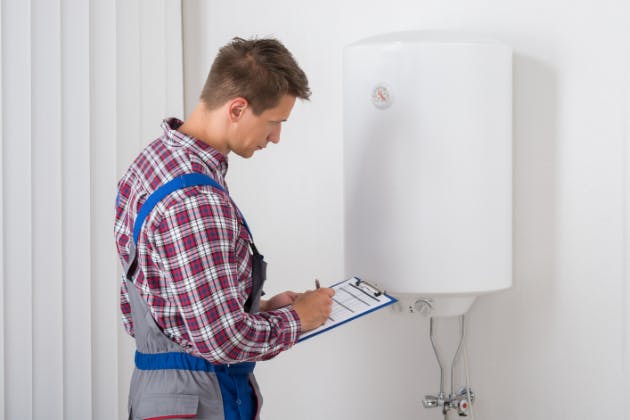If your boiler is too powerful or not powerful enough, you’ll feel it, either in your energy bills or your cold shower. Sizing a boiler isn’t guesswork. It’s a technical process that ensures your home is heated efficiently, reliably, and affordably. Here's how heating engineers determine the right boiler for your property, and what can happen if the wrong size is chosen.

How Heating Engineers Select the Perfect Boiler Size
Key Factors That Influence Boiler Sizing
Property Size and Layout
Larger homes with multiple bathrooms and floors naturally require more heating power. However, if the property is well insulated, it may retain heat better and need a slightly smaller unit. Engineers assess total floor space and insulation levels to guide this decision.
Radiator Count and Heat Demand
A common method is to assign roughly 1.5kW per radiator. For example, 10 radiators would require around 15kW. While useful as a basic rule, professional assessments consider room size, window area, and building materials for greater accuracy.
Hot Water Usage
How many people live in your home? Do multiple showers or taps run at once? High demand, especially in homes with more than one bathroom, increases the size requirement. In contrast, lower usage allows for a smaller, more efficient boiler.
Boiler Type
Each boiler type has different capabilities:
- Combi Boilers: Provide instant hot water and heating. Ideal for smaller homes with fewer bathrooms.
- System Boilers: Use a separate hot water cylinder. Suitable for larger households with higher hot water needs.
- Regular Boilers: Also known as heat-only boilers. Require both a cold water tank and a hot water cylinder. Common in older or larger homes with existing pipework systems.
Methods for Calculating Boiler Size
Using Boiler Size Calculators
Online tools provide rough estimates based on factors like home size and hot water use. While they’re helpful for getting a ballpark figure, they don’t account for technical details like heat loss or system design.
Manual Calculations
Here’s a simplified method heating engineers often use:
- Calculate heating requirement: Number of radiators × 1.5kW
- Add hot water requirement: ~3kW per bathroom
- Combine totals: Add both numbers together
- Include a 10% buffer: Multiply by 1.1 for system efficiency
Example: 10 radiators + 2 bathrooms = 15kW + 6kW = 21kW → 21kW × 1.1 = 23.1kW boiler
What Happens When Your Boiler is the Wrong Size
Oversized Boiler
- Higher purchase and running costs
- More frequent on-off cycling, reducing efficiency
- Unnecessary wear and tear on components
- Can shorten the boiler’s overall lifespan
Undersized Boiler
- Inadequate heating or hot water
- System overworking, leading to faults and breakdowns
- Increased energy consumption
- Discomfort during cold weather or high usage times
How Engineers Make the Right Recommendation
Detailed Property Assessment
- Evaluate layout, insulation, and total area
- Conduct heat loss calculations using specialised software
- Analyse water usage and identify peak demand times
- Inspect existing pipework and radiator system compatibility
Tailored Boiler Advice
- Recommend the right type of boiler for your home and lifestyle
- Calculate a precise kW rating for both heating and hot water needs
- Factor in future plans like loft conversions or larger households
- Suggest energy-efficient upgrades such as smart controls or better insulation
This thorough approach ensures your boiler isn’t just a fit for now—but continues to perform as your needs evolve.
Need expert boiler advice in Southampton?
T P Watts Plumbing Services offers professional boiler assessments and installations tailored to your home. Call us on 02380 601566 or 07732 785867 or fill out our contact form to get the right-sized boiler for long-term comfort and efficiency.



